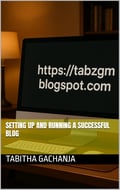As a freelancer, you're responsible for every aspect of your career, including health insurance. Unlike employees who receive health benefits through their employers, freelancers must seek out their own coverage, often navigating a complex and sometimes overwhelming landscape of options. However, finding the right health insurance plan is crucial for freelancers to ensure they have access to necessary medical care without breaking the bank.
In this guide, we'll explore the various health insurance plans available to freelancers, how to compare them, and key factors to consider to help you choose the best option for your needs. Whether you're a new freelancer or have been working independently for years, understanding your health insurance choices can help you make informed decisions and avoid costly mistakes.
1. Why Health Insurance is Important for Freelancers
Health insurance is essential for everyone, but it is especially important for freelancers. As an independent worker, you're responsible for your own health and well-being, and if you're uninsured or underinsured, medical expenses can quickly pile up, leaving you in a difficult financial situation.
Here are a few reasons why freelancers need health insurance:
-
Preventive care: Regular check-ups, screenings, and vaccinations can catch potential health issues early and prevent costly medical bills later on.
-
Financial protection: Health insurance helps protect you from high out-of-pocket expenses in case of unexpected medical emergencies, accidents, or illnesses.
-
Peace of mind: Having health insurance ensures that you're covered for the majority of medical expenses, which helps you focus on your work and reduces stress about healthcare costs.
Freelancers, in particular, are at greater risk for health complications due to irregular work hours, inconsistent pay, and potentially limited access to health resources. Health insurance helps reduce those risks and provides a financial safety net in case of illness or injury.
2. Types of Health Insurance Plans for Freelancers
Freelancers have several options for health insurance coverage. The best plan for you will depend on your needs, budget, and preferences. Here are some common options available to freelancers:
1. Health Insurance Through the Affordable Care Act (ACA) Marketplace
The Affordable Care Act (ACA) provides an accessible option for health insurance through the Health Insurance Marketplace. The marketplace offers several plans with varying levels of coverage, and it’s especially beneficial for freelancers who may not have access to employer-sponsored insurance.
Advantages:
-
Variety of plans: The ACA Marketplace offers multiple coverage levels, such as Bronze, Silver, Gold, and Platinum plans. Bronze plans have lower monthly premiums but higher deductibles, while Platinum plans have higher premiums but lower out-of-pocket costs.
-
Subsidies: Depending on your income, you may be eligible for subsidies to help cover the cost of premiums. This is particularly helpful for freelancers who have fluctuating incomes.
-
Special Enrollment Periods: Outside of open enrollment, you can still apply for ACA coverage if you experience a qualifying life event, such as marriage, having a baby, or losing other coverage.
How to Apply:
-
Visit the Health Insurance Marketplace website (healthcare.gov or your state’s marketplace) to explore plans.
-
During the open enrollment period (typically in the fall), you can sign up for or renew coverage.
-
If your income is below a certain threshold, you may qualify for Medicaid, which offers low-cost or free health insurance.
2. Short-Term Health Insurance
Short-term health insurance plans are designed for temporary coverage, typically lasting up to 12 months. These plans provide a basic level of coverage but may not cover all of the essential health benefits required under the ACA.
Advantages:
-
Lower premiums: Short-term plans are generally cheaper than ACA marketplace plans, making them an attractive option for freelancers on a tight budget.
-
Flexibility: These plans can provide coverage for gaps in insurance between jobs or if you’re between contracts.
Disadvantages:
-
Limited coverage: Short-term plans may exclude coverage for pre-existing conditions and may not cover essential health benefits like maternity care, mental health services, or prescription drugs.
-
No protection against penalties: Since short-term plans don’t comply with ACA requirements, you could be subject to a penalty if you don’t have ACA-compliant coverage.
3. Health Savings Accounts (HSAs) and High Deductible Health Plans (HDHPs)
If you're generally healthy and don't expect to need extensive medical care, a High Deductible Health Plan (HDHP) paired with a Health Savings Account (HSA) may be a good choice. HDHPs have lower monthly premiums but require you to pay a higher deductible before the insurance starts to pay.
Advantages:
-
Lower premiums: HDHPs typically have lower monthly premiums compared to traditional plans.
-
Tax benefits: Contributions to an HSA are tax-deductible, and the funds can be used tax-free for qualified medical expenses.
-
Long-term savings: Funds in your HSA roll over year to year, and you can use them for future healthcare expenses.
Disadvantages:
-
High deductible: You may have to pay more out-of-pocket before your insurance kicks in, which can be costly if you need care.
-
Limited coverage for some services: Depending on the plan, certain services like preventive care may not be covered until the deductible is met.
4. Freelancer Health Insurance Plans from Professional Associations
Some professional organizations or trade associations offer health insurance plans to their members. These plans are often available to freelancers who belong to specific industries, such as writers, designers, or photographers.
Advantages:
-
Group rates: These plans may offer more affordable premiums because they pool together multiple freelancers to access group rates.
-
Industry-specific coverage: Depending on your profession, you may find plans tailored to your industry’s needs.
Disadvantages:
-
Eligibility requirements: You’ll need to be a member of the organization to qualify for the group health plan.
-
Limited options: The plan options may be limited and may not provide the full range of coverage you need.
3. How to Compare Health Insurance Plans for Freelancers
When selecting a health insurance plan as a freelancer, there are several factors to consider. Here’s how to compare the options available to you:
1. Premiums
The premium is the amount you pay monthly for your health insurance. It’s essential to choose a plan that fits your budget while still offering sufficient coverage. However, keep in mind that lower premiums often come with higher deductibles or less comprehensive coverage.
2. Deductibles and Out-of-Pocket Costs
The deductible is the amount you must pay out-of-pocket before your insurance begins to cover medical expenses. A plan with a lower deductible may have higher premiums but could save you money if you need frequent medical care. Make sure to evaluate both your premium and deductible to understand the overall cost.
3. Coverage for Essential Health Benefits
Ensure that the plan covers essential health benefits such as:
-
Preventive care (vaccines, screenings, wellness visits)
-
Prescription medications
-
Hospital stays
-
Mental health services
-
Maternity care (if applicable)
Plans that meet the ACA standards are required to cover these essential benefits.
4. Network of Providers
Check whether your preferred doctors, hospitals, and healthcare providers are in-network with the health insurance plan you're considering. Out-of-network care can be much more expensive, so it's essential to ensure you have access to your preferred providers.
5. Customer Service and Claims Process
Research the reputation of the insurance provider and its customer service. You want an insurer that is responsive, easy to work with, and has a smooth claims process in case you need to seek medical care.
4. Health Insurance Tips for Freelancers
1. Don’t Wait Until You Get Sick
Freelancers often put off purchasing health insurance because they’re healthy or don’t think they’ll need it. However, waiting until you need care can lead to gaps in coverage or missing enrollment periods.
2. Shop Around for the Best Rates
Make sure to get quotes from several health insurance providers to compare premiums, coverage, and benefits. Websites like eHealthInsurance and Healthcare.gov can help you compare different plans.
3. Set Aside Money for Medical Expenses
Even if you have insurance, there will still be out-of-pocket costs like co-pays, deductibles, and prescriptions. Consider setting up an HSA (if eligible) or creating a savings fund to cover medical expenses.
4. Review Your Plan Annually
Freelancers often experience fluctuations in income, and your health insurance needs may change over time. Review your health insurance plan annually and adjust your coverage as necessary to ensure it still fits your needs.
Conclusion
As a freelancer, choosing the right health insurance plan can be challenging, but it's a critical step in protecting your health and finances. Whether you opt for a plan through the ACA marketplace, a short-term policy, or a Health Savings Account with a high-deductible plan, the key is to assess your health needs, budget, and lifestyle to find the best fit. By comparing different plans, understanding your options, and considering factors like premiums, coverage, and provider networks, you can make an informed decision and ensure you're covered for both routine care and unexpected medical emergencies.


















0 comments:
Post a Comment
We value your voice! Drop a comment to share your thoughts, ask a question, or start a meaningful discussion. Be kind, be respectful, and let’s chat!